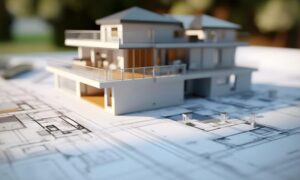
If you’re looking to develop land, having a sustainable business plan is crucial. Without one, your project could quickly fall apart – costing you time and money. In this article, real estate developer Damon Becnel provides tips and strategies for creating a successful business plan for your land development project. So, whether you’re just getting started or you’ve hit a snag along the way, read on for helpful advice.
Define Your Project Goals
Before you begin any land development project, it is important to have a clear understanding of your goals and objectives. What are you hoping to achieve with the project? Are you looking to increase property values in the area, attract new businesses, or improve the quality of life for residents? Once you have a good sense of your overall goals, you can develop a more detailed business plan. This should include an analysis of the development site, a market analysis, and a financial plan. With a well-crafted business plan, you will be in a much better position to navigate the land development process successfully.
Establish A Timeline
Establishing a timeline for your project when developing a business plan for land development is important. This will give you a goal to work towards and help keep you on track. The timeline should be realistic and achievable, based on available resources. When planning the timeline, it is also important to consider potential delays and setbacks. By having a clear timeline, you can ensure that your project stays on track and is completed within your set time frame.
Create A Realistic Budget
The budget for your land development project is another important element of the business plan. This should be a realistic and achievable budget based on the project’s scope. The budget should also include a contingency fund to cover unexpected costs or delays. When creating the budget, it is important to consider all of the expenses associated with the project, including acquisition costs, site preparation costs, construction costs, and marketing and advertising expenses.
Research Potential Funding Sources
Once you have developed a realistic budget for your project, you can begin researching potential funding sources. There are many different options available for financing land development projects. These include loans from banks or other financial institutions, grants from government agencies, and private investments from individuals or firms. It is important to consider all your options and choose the one best suited to your project. Making the right choice will help you finance your project and reach your goals successfully.
Outline The Steps To Obtain Permits And Approvals
To move forward with your land development project, you will need to obtain the necessary permits and approvals from local government agencies. This process can be complex and time-consuming, so it is vital to clearly understand the steps involved and consult a professional like Damon Becnel. Once you have obtained all the required permits and approvals, you can begin moving forward with your project. Having all the needed permits and approvals in place will help ensure that your project stays on track and is completed according to plan.
Draft A Marketing And Communications Plan
Once you clearly understand your goals and objectives, timeline, budget, and funding sources, you can begin to draft a marketing and communications plan for your project. This should include a detailed analysis of your target market, a communications strategy, and a marketing budget. By having a well-crafted marketing plan, you will be in a much better position to promote your project and achieve your goals successfully.
Final Thoughts
With these tips in mind, you will be on your way to developing a successful business plan for your land development project. By carefully considering each of these elements, you can increase your chances of success and ensure that your project is completed on time and within budget. This advice will help you get started on your land development project today.




